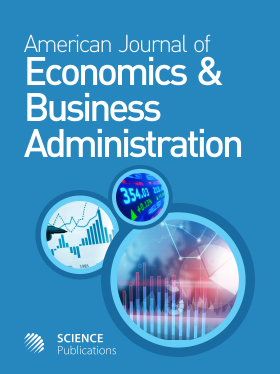IMPACT OF DEREGULATION OF THE JAMAICA MOBILE PHONE MARKET ON CALLING RATES
- 1 The University of the West Indies, Jamaica
Abstract
Deregulation of the telecommunications industry has led to a phenomenal growth in mobile phone service subscription in Jamaica with penetration rate reaching more than 100% within a decade of the start of deregulation. Consumers have benefited with significant cuts in rates for mobile phone service following the entry of new service providers. This study models the competition among old and new service providers as a game of entry deterrence in which the entrant is of two types, a low-cost or a high-cost entrant. The entrant knows its type but the incumbent does not. However, the incumbent knows the probability that nature assigns to a particular type of entrant. Four scenarios are examined as candidates for equilibrium. In the first scenario, our model shows that the incumbent can ensure that a new entrant stays out by setting price too low. In scenario two, regardless of the action of the incumbent, the low-cost entrant will always enter the market and the incumbent will cooperate. For scenario three, the incumbent’s action to fight an entrant will only make the high-cost entrant to stay out if price is set too low or cost is too high. In the final scenario, the entrant will always enter regardless of its type and the incumbent will have no other choice than to cooperate. In the case of the Jamaica mobile phone market, our model suggests that the only Bayesian Nash equilibrium is a separating equilibrium in which the incumbent fights entry and the low-cost entrant enters the market. In equilibrium, the price war between old and new companies will persist until all economic profits have been eroded, potentially setting the stage for a return to monopoly. However, even under a monopoly, the low rates for service will persist as the incumbent has a strong incentive to keep prices low to deter any potential new entrants. Based on our model results, we conclude that incumbent mobile phone service providers in Jamaica will continue to institute a price war and a new provider will enter the market only if it has superior technology or a strong financial base.
DOI: https://doi.org/10.3844/ajebasp.2014.81.88

- 6,268 Views
- 4,245 Downloads
- 0 Citations
Download
Keywords
- Entry Deterrence
- Deregulation
- Industry Leader
- Jamaica
- Price War
